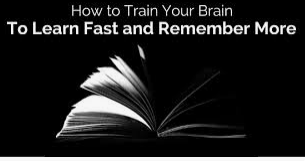
Understand Learning Styles
Understanding how you learn best is essential for effective studying. People have different learning styles, and identifying your preferred style can significantly enhance your learning experience. Here are the main learning styles and strategies associated with each:
- Visual (Spatial) Learning Style: Visual learners grasp information best through visuals like pictures, graphs, and diagrams. They find the following techniques helpful:
- Creating charts, maps, and diagrams.
- Using cameras or videos to capture important material.
- Taking written notes and using highlighters to emphasize key points.
- Auditory (Aural) Learning Style: Auditory learners learn best through spoken information. They benefit from the following techniques:
- Listening to audio recordings related to the subject.
- Reading aloud engages their sense of hearing.
- Taking notes and discussing the material with others.
- Reading/Writing Learning Style: Reading/writing learners excel when information is presented in written form. They find these strategies effective:
- Reading texts and materials on the subject.
- Taking detailed notes while reading.
- Summarizing and highlighting key points in texts.
- Kinesthetic (Physical) Learning Style: Kinesthetic learners thrive when they can physically engage with the material. These strategies work well for them:
- Performing hands-on experiments.
- Building models or physical representations.
- Engaging in role-playing activities.
- Multimodal Learning Style: Some individuals have a multimodal learning style, meaning they benefit from multiple modes of information. If you have a multimodal style, try combining strategies from different learning styles to optimize your learning experience.
It’s important to note that not all learning methods work for everyone. Experiment with different approaches to find the ones that work best for you.
n best. Once you know your learning style, you can tailor your studying accordingly.
Understand the Stages of Learning
Learning progresses through various stages, each with its own characteristics and requirements. Familiarizing yourself with these stages can help you tailor your studying accordingly. Here are the four main stages of learning:
- Unconscious Incompetence: In this stage, learners are unaware of what they don’t know. They lack the skills or knowledge necessary to perform a task.
- Conscious Incompetence: Here, learners become aware of their knowledge gaps. They realize the need to acquire new skills or knowledge to perform a task.
- Conscious Competence: At this stage, learners have acquired the skills or knowledge required for a task. However, concentration is still necessary to execute the task effectively.
- Unconscious Competence: Learners in this stage can perform a task effortlessly and without conscious thought. They have mastered the skill or concept.
Understanding your stage of learning can guide your studying approach, allowing you to focus on areas that require attention and reinforcing what you have already mastered.
Effective Study Techniques
To study effectively for exams, consider incorporating the following techniques into your routine:
- Repetition: Repeating the information multiple times helps encode it in your memory for better recall.
- Understanding: Seek to understand the material you’re learning rather than merely memorizing it. Reflect on its significance and connections to enhance retention.
- Organization: Organize information by creating categories or using tools like mind maps to visualize relationships between ideas.
- Handwritten Notes: Take handwritten notes as they engage different cognitive processes and enhance information retention compared to typing.
- Retrieval Practice: Test yourself on the material you’re studying through practice quizzes or writing answers to questions. This aids in memory consolidation.
- Spaced Learning: Spread out your study sessions over time to allow for better processing and encoding of information.
- Verbalization: Saying the information out loud helps reinforce your understanding and memory of the material.
- Teaching Others: Explaining the material to someone else solidifies your understanding and helps organize the information in your mind.
- Feedback: Seek feedback on your progress to identify strengths and areas for improvement. This can also motivate you and help set learning goals.
- Sleep: Sufficient sleep is crucial for memory consolidation, so ensure you get enough rest during your study periods.
- Mnemonic Devices: Utilize memory techniques like rhymes, acronyms, or chunking to aid in remembering complex information.
- Practice Tests: Take practice tests to familiarize yourself with the exam format, identify areas for improvement, and boost confidence.
- Memory Techniques: Explore various memory techniques, such as mnemonic devices, visual aids, and spaced repetition, to enhance learning and retention.
- Breaks: Take regular breaks during study sessions to reduce fatigue and maintain focus and productivity.
- Minimize Distractions: Create a distraction-free environment by turning off your phone, finding a quiet study space, and closing the door.
- Confidence: Believe in your abilities and maintain a positive mindset to boost motivation and learning outcomes.
- Study Schedule: Create a study schedule to manage your time effectively and ensure comprehensive coverage of exam material, reducing stress.
- Short Study Bursts: Opt for shorter study sessions spread across multiple occasions, as it enhances information processing and retention.
- Review Sessions: Space out your review sessions to allow for proper information encoding and reduce stress associated with last-minute cramming.
In conclusion, there is no one-size-fits-all approach to studying for exams. Discover your learning style, identify your stage of learning, and employ effective study techniques that resonate with you. With dedication and persistence, you can maximize your chances of success.
Don’t forget to follow my Facebook or Twitter account
https://www.facebook.com/profile.php?id=100085540707736
https://twitter.com/DallierMic60307
References
- Edutopia: https://www.edutopia.org/
- TeachThought: https://www.teachthought.com/
- Learning Scientists: https://www.learningscientists.org/
- JSTOR: https://www.jstor.org/
- ScienceDirect: https://www.sciencedirect.com/
- Google Scholar: https://scholar.google.com/
- “Make It Stick” by Peter C. Brown, Henry L. Roediger III, and Mark A. McDaniel (book)
- “Accelerated Learning Techniques” by Brian Tracy (book)
- Coursera: https://www.coursera.org/
- edX: https://www.edx.org/
- Udemy: https://www.udemy.com/